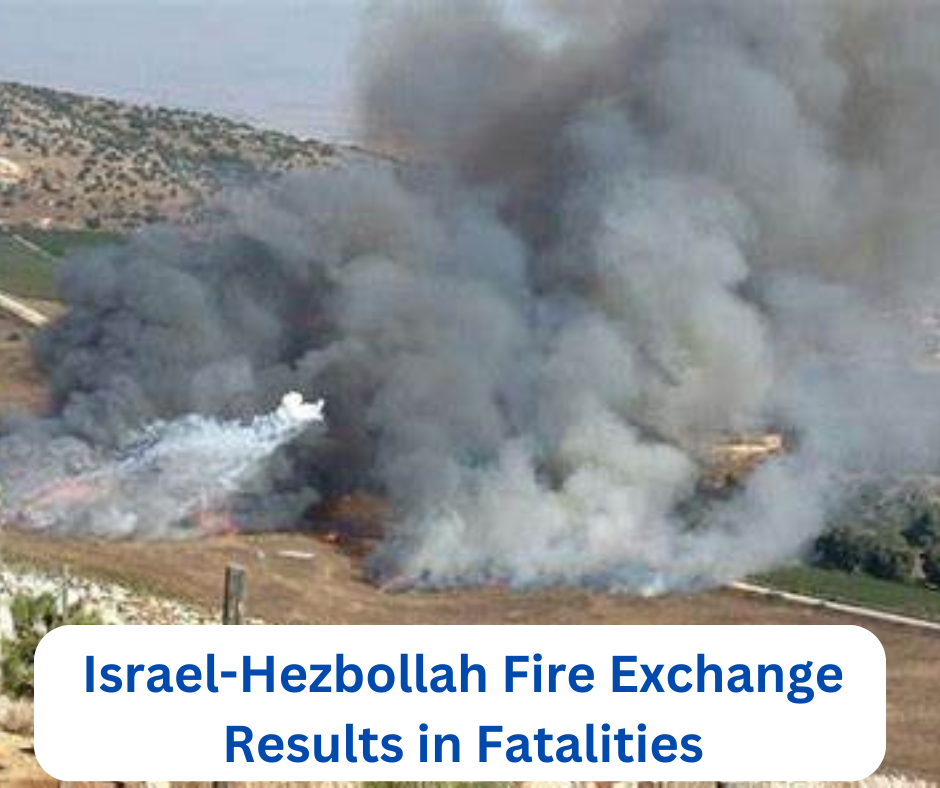The recent exchange of fire between Israel and Hezbollah has once again heightened tensions in the region, resulting in the tragic loss of three militants. This conflict, rooted in a complex history, continues to evolve, impacting not only the immediate participants but also the geopolitical landscape. In this article, we delve into the latest events, providing a comprehensive analysis of the incident, its background, and the potential implications for the future.
Background of Israel-Hezbollah Tensions
Historical Context
The Israel-Hezbollah conflict is embedded in decades of hostility, marked by numerous clashes and periods of uneasy ceasefire. Hezbollah, a Shiite militant group based in Lebanon, emerged in the early 1980s, fueled by the Israeli invasion of Lebanon. Since then, it has grown into a formidable military and political force, often clashing with Israel over territorial and ideological disputes.
Recent Developments
In recent years, the conflict has seen intermittent flare-ups, with both sides engaging in retaliatory attacks. The latest exchange of fire is a continuation of this pattern, triggered by various factors including political dynamics within Lebanon, regional power struggles, and direct provocations.
The Incident: A Closer Look
Details of the Exchange
On [date of incident], Israeli forces and Hezbollah fighters engaged in a significant exchange of fire along the Israel-Lebanon border. According to reports, the confrontation began when Hezbollah militants launched rockets into Israeli territory. In response, the Israeli Defense Forces (IDF) conducted airstrikes targeting Hezbollah positions.
Casualties and Damage
The exchange resulted in the deaths of three Hezbollah militants. Additionally, there were reports of infrastructural damage on both sides of the border. The IDF stated that its actions were a direct response to the provocations, aiming to neutralize threats and prevent further escalation.
Implications for Regional Stability
Impact on Israel-Lebanon Relations
The incident has further strained Israel-Lebanon relations, with both nations accusing each other of aggression. This deterioration in relations could potentially lead to more frequent and intense clashes, disrupting the fragile peace that has occasionally prevailed.
Broader Geopolitical Ramifications
The Israel-Hezbollah conflict is not confined to the two parties alone. It involves a broader geopolitical context, with regional powers like Iran and Syria playing influential roles. Hezbollah receives significant support from Iran, while Israel is backed by Western allies, primarily the United States. This incident could exacerbate existing tensions between these larger powers, complicating diplomatic efforts in the Middle East.
Humanitarian Concerns
Civilian Impact
As with any conflict, civilians bear a significant burden. The exchange of fire along the border has led to the displacement of residents in nearby areas, as they flee to avoid the violence. There are also concerns about the destruction of property and infrastructure, which can have long-term effects on local communities.
International Response
The international community has called for restraint from both sides. The United Nations has expressed concern over the escalation and urged for dialogue to prevent further violence. Humanitarian organizations are also mobilizing to provide aid to those affected by the conflict.
Military Strategies and Tactics
Hezbollah’s Approach
Hezbollah’s tactics involve a combination of guerrilla warfare and conventional military strategies. The group often uses rocket attacks and ambushes to target Israeli forces and settlements. This approach aims to inflict maximum damage while minimizing direct confrontations, leveraging their knowledge of the local terrain.
Israel’s Defensive Measures
The IDF employs a range of defensive and offensive measures to counter Hezbollah. These include aerial surveillance, airstrikes, and ground operations. Israel’s military strategy is geared towards quickly neutralizing threats and deterring further attacks through a show of strength.
Political Repercussions
Domestic Politics in Israel
The incident has significant implications for Israeli domestic politics. Leaders may use the conflict to rally public support and justify military spending. It also influences the political discourse, with parties taking stances on how best to handle the Hezbollah threat.
Hezbollah’s Position in Lebanon
For Hezbollah, the conflict serves as a means to solidify its position within Lebanon. By portraying itself as a defender against Israeli aggression, Hezbollah can garner support from certain segments of the Lebanese population. However, it also faces criticism for provoking violence that leads to civilian suffering.
Future Prospects
Potential for Escalation
The potential for escalation remains high. Any further attacks or retaliations could trigger a more extensive conflict, drawing in additional regional players and complicating peace efforts. Both sides continue to prepare for the possibility of prolonged engagements.
Pathways to Peace
Despite the hostilities, there are pathways to peace. Diplomatic efforts, mediated by international bodies, could help de-escalate tensions. Confidence-building measures, such as ceasefire agreements and prisoner exchanges, might pave the way for more substantive negotiations.
Conclusion
The recent exchange of fire between Israel and Hezbollah underscores the persistent volatility in the region. The deaths of three militants highlight the human cost of this enduring conflict. As both sides navigate the aftermath, the international community must remain vigilant, advocating for peaceful resolutions while addressing the humanitarian needs of those affected.
